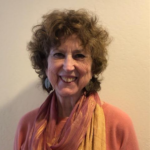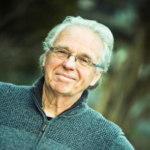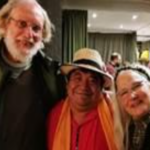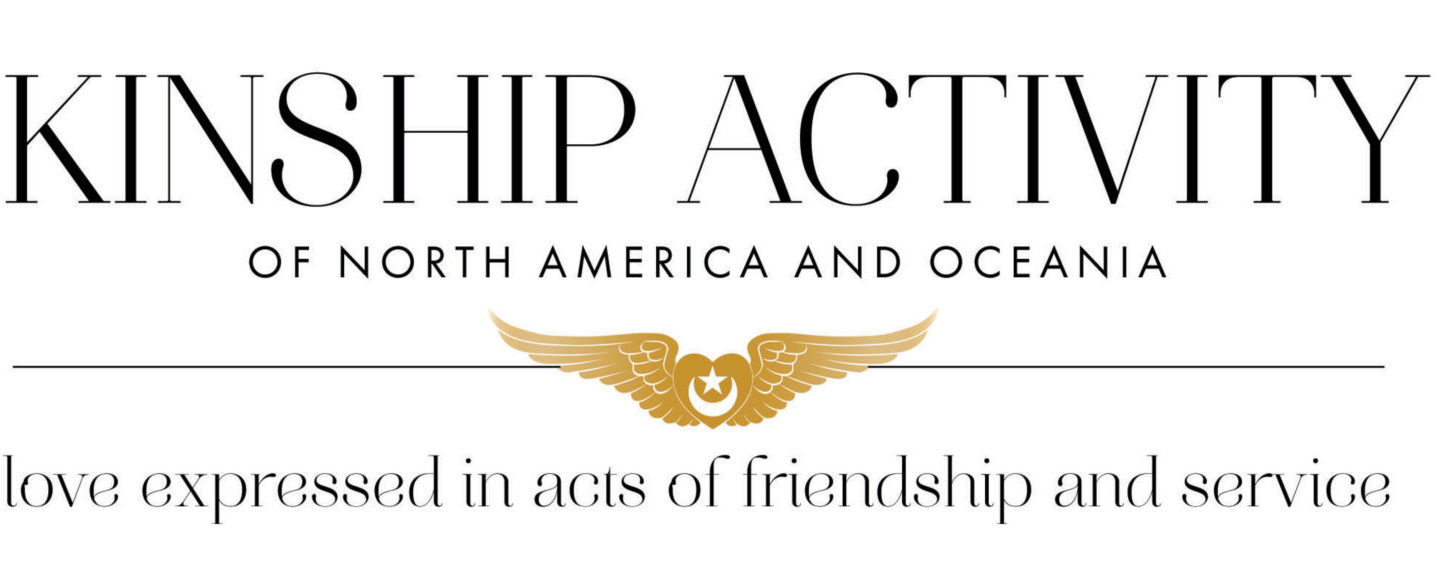In this issue—
- New Kinship Discussion Group!
- Kinship support for Sufi Remembrance
- The Science of Belonging – Nur Azad
- Nayaz-Sister-Brotherhood – From our European Kinship family
- A prayer for the Holy Land
New Kinship Discourse
We invite you to join a new online Kinship forum beginning on April 8th. This dedicated Discourse assembly offers a welcoming place for us to interact with each other and share our reflections, experiences, and inspirations as we explore relevant Kinship themes. Given that our monthly Kinship circles have been reduced for the time being to accommodate the Earth Responders program, this will be a key way for us to keep in touch, discuss important issues, and build connection and communities of care.
You must opt in to participate. If you are interested in joining, you can opt in by simply clicking here. Please note that by clicking this link, you give your consent to be added to the Kinship Discourse list.
If you do not already have a Discourse account, you will be asked to create one first. If you already have a Discourse account, it’s even easier – you will be added to the list automatically when you click the link above. The next time you log into Discourse, you should see the Kinship list in your list of subscriptions.
Unfamiliar with Discourse? It’s an old-school discussion forum with optional mailing list functionality. If you’ve ever used a forum before, it will look familiar. Users can customize their email preferences to receive email notifications when there are new posts. You can unsubscribe at any time.
Please feel free to send us your thoughts and suggestions. Beginning April 8, this forum will be open.
With love, in service,
Rabia and the Kinship Council
Sufi Remembrance
Our path is one of remembrance. We are fortunate to have access to a Sufi Remembrance web site, a place for gathering memories of those in the Sufi lineage of Hazrat Inayat Khan who have transitioned to the Unseen Realms. This site was created by a long-time Sufi murid Khushi Tanveer who, while on retreat 17 years ago, was called to create a repository for all those who trace their Sufi lineage back to Inayat Khan. This virtual Sufi Cemetery was to include all his murids, regardless of affiliation.
Now the web site holds memories for over 300 murids, 141 of whom trace their lineage through the Inayatiyya. One can search for a murid through their name or lineage. The site contains: biographical information; information about the person’s soul qualities, inner development, life purpose, etc.; and ways in which individuals were touched, inspired, or enriched by encounters with the person. This provides an opportunity to remember members of our spiritual family for their contributions to the Message.
 Continuing to follow her inner guidance, Khushi is looking to build a team to carry on Sufi Remembrance. She is seeking participation of at least one person from each Order that has a presence on the site. Each team member will be a conduit for their own community, thereby improving the site’s efficacy.
Continuing to follow her inner guidance, Khushi is looking to build a team to carry on Sufi Remembrance. She is seeking participation of at least one person from each Order that has a presence on the site. Each team member will be a conduit for their own community, thereby improving the site’s efficacy.
In considering how to structure the team for longevity, Khushi approached the Kinship activity to be part of the team. We have accepted this invitation to preserve memories of the past for the future. If you are interested is supporting this service, please contact: kinship@inayatiyya.org If you have a name to add to the list of those who have passed on, contact Khushi at sufiremembrance@sonic.net
The Science of Belonging: Exploring the Evolutionary Roots of Kinship
By Nur Azad Mangold
In the intricate tapestry of existence, the concept of kinship emerges as the pinnacle of a 14-billion-year evolutionary journey. From the mineral realm to the vegetable, animal, and ultimately, the human domain, our nervous systems stand as the avant-garde of this remarkable progression. While acknowledging the contribution of diverse life forms to this cosmic evolution, our focus narrows to the unique dynamics inherent in human beings.
Biologically, we are encoded to belong. As mammals, our survival hinged on the ability to draw near for mutual protection, securing safety for offspring, and competitively navigating resources against species more robust, swifter, and inherently perilous than ourselves. Key to this inherent belonging is the autonomic nervous system, encompassing the parasympathetic and sympathetic functions.
Recently, Dr. Stephen Porges has conducted groundbreaking work that reframes our understanding of the sympathetic and parasympathetic nervous systems. He delineates three branches, with the parasympathetic having two branches—dorsal and ventral. The sympathetic system, traditionally seen as adversarial, is now perceived as a mobilization network. These organized groupings of the autonomic nervous system are hierarchical, each serving a specific function and communicating with higher brain functions to convey messages of safety or threat.
Higher brain functions then weave stories to comprehend the nature of safety or threat, creating an attendant tone or narrative. In the dorsal vagal protective form, stories may lean towards depression or a sense of incapacity. Moving up to the sympathetic or mobilization system, narratives may take on an aggressive tone, framing situations as threatening or stacked against us, fostering a fight-or-flight mentality. Transitioning into the ventral vagal state, stories shift towards conditions of generosity and connection, acknowledging challenges while emphasizing collaboration and the potential for resolution. The phrase that best captures this process is “Story follows State.”
This intricate process repeats itself four times per second, guiding our instinctual sense of whether to draw nearer or withdraw. Kinship, occurring beneath our conscious awareness, stands as a biological imperative, compelling us to belong. Intriguingly, these neurological systems, though subconscious, mold our perception of the world. Through the lens of safety, we become naturally inclined towards generosity, compassion, kindness, creativity, care, organic order, and responsiveness. Conversely, perceiving the world through the filter of danger cultivates judgment, criticism, and division.
What does this mean for the kinship activity? It’s quite simple. If we are not relating to each other through the lens of ventral vagal or the social engagement network, then we are not coming together in the spirit that our biology has arranged for us. It would mean that we have dropped down or down-regulated into the fight/flight or mobilization network, which will lead us to exchange, barter, or adversarial relationships sometimes disguised as teamwork. If we go further down the evolutionary ladder into dorsal vagal or collapse, we may be present to the kinship activity because we have nothing better to do or that we like the idea but don’t have any real energy to pour into its core concepts.
The basic teachings of Sufism have understood this approach. Ancient peoples have been very aware of the need for this regulation of our nervous systems and have built-in methods to achieve that end. The simplest and often most effective are breathing, singing, dancing, and chanting together. We also have reciprocal heart centered dialogues exploring the nature of life in an attuned and friendly atmosphere. These exercises tone the parasympathetic and sympathetic nervous systems so they become flexible and insulated from dysregulation. What I’m suggesting is that we consciously bring forward the exercises that increase vagal tone and allow us to operate more fully from the social engagement network while at the same time creatively using the sympathetic and dorsal networks that are allied to it. Inayat Khan would call this “the natural state.” In the service of this natural state, he developed Kinship Meetings or Circles whose purpose was to foster belonging and develop a deep feeling of gratitude– feelings only possible when we are in a neurological state of social engagement. In the atmosphere of these meetings, a deep and diverse understanding is possible that allows for the emergence of sympathy and tolerance.
As I mentioned earlier, the Autonomic Nervous System is not intelligent but simply offers information—safe/ not safe. It is our cognitive faculties that assess the information and create an explanation and a plan for that information. This is where “story follows state” comes into play. The old stories of individualism, supremacy and acquisition are rapidly fading and new stories that more accurately explain the nature of life are emerging. We call this story “the ideal.” For several decades now the ideal has shifted toward one of creativity, belonging, and meaning embedded in the very structure of life. The stories are in our Sufi teachings and are also converging from many other directions: cosmology, neurobiology, psychology, sociology. We are entering a time when a more accurate version of humanity’s purpose is redefining and refocusing itself to meet the  needs of the day. Kinship in conjunction with the other activities can create the story so that it includes the next step in the creative evolution of consciousness itself. We call it the “Message of Love, Harmony and Beauty.”
needs of the day. Kinship in conjunction with the other activities can create the story so that it includes the next step in the creative evolution of consciousness itself. We call it the “Message of Love, Harmony and Beauty.”
If you have questions or just want to chat about this topic, feel free to contact the author Nur Azad Mangold at nawrhu@gmail.com
For more information:
- Polyvagal Theory Explained – Dr. Stephen Porges: https://www.youtube.com/watch?v=HXgAdjWyZaI
- Beginner’s Guide to Polyvagal Theory: https://jeffdwarshuis.com/wp-content/uploads/2022/12/Polyvagal-Beginners-Guide.pdf
- Spirituality Concepts from a Polyvegal Perspective – Dr. Stephen Porges: https://www.youtube.com/watch?v=NPaj3QgcyAU
Nayaz-Sister-Brotherhood
Fifty years ago, I joined the human rights organization, Amnesty International by writing letters on behalf of people whose Human Rights were violated. In that time, before computer availability, handwriting letters for “prisoners of conscience” was for me an occasion for prayer and meditation. I have, for many years, prayed the Nayaz prayer of Hazrat Inayat Khan for everyone in need. I love the universality of the words: “through the Rays of the Sun, through the Waves of the Air, through the All-pervading Life in space.” After a while, the Nayaz prayer became a natural flow. So the “Nayaz-Sister-Brotherhood” project began in 2014. We received the blessing of Bawa, and the blessing of Halim Knobel, who coordinated the effort, in accord with the European kinship council.
People for whom prayer and meditation are an important practice in their lives, and who want to work towards more justice in the world, can join us in the Nayaz-Sister-Brotherhood. We request that participants give their attention 2 times a week to a list of 10 people. Members who want to join us with their prayers and meditations receive every month the Name list (of 10 people) and the Briefing (the newsletter with any good news) from the Nayaz-Sister-Brotherhood-team.
Holding these people in the focus of our prayers is for Nayaz-Sister-Brotherhood a loving service to, and from, God. These efforts make God a reality! Most important in this effort is that everyone’s heart-felt prayer comes from his or her personal inner intention, to keep our sisters and brothers who are prisoners of conscience safe, in our prayers. For this we compose monthly a Name list of about 10 people who are kept captive or even tortured for standing up for human rights in their country. We mail it to people all of over our planet who commit themselves to pray for, or write to these people. If you would like to receive this name list monthly by email, please write us: nayazsisterbrotherhood@gmail.com
 Being active in this work, we’ve had the opportunity to meet people who were released by worldwide actions. Last month Amnesty International Belgium invited Bernardo Caal Xol (Guatemala). It was a warmhearted meeting with a human rights defender who, after seven years in prison, now travels around the globe to inform about the suppression of his people. You can find his story here: https://www.youtube.com/watch?v=asLRbLbPUfk&list=PPSV
Being active in this work, we’ve had the opportunity to meet people who were released by worldwide actions. Last month Amnesty International Belgium invited Bernardo Caal Xol (Guatemala). It was a warmhearted meeting with a human rights defender who, after seven years in prison, now travels around the globe to inform about the suppression of his people. You can find his story here: https://www.youtube.com/watch?v=asLRbLbPUfk&list=PPSV
Finally, I would like to end with a message from Bawa:
“We need today the religion of tolerance. In daily life we cannot all meet on the same ground, being so different, having such different capacities, states of evolution, and tasks. So if we had no tolerance, no desire to forgive, we could never bring harmony into our soul; for to live in the world is not easy and every moment of the day demand a victory. If there is anything to learn, it is tolerance.”
Let’s keep the message of tolerance as a sacred promise in our kinship:
Beloved Lord, Almighty God!
Through the rays of the sun,
Through the waves of the air,
Through the All-pervading Life in space,
purify and revivify our body, our mind, our heart and our soul,
And we pray, heal our humanity
for the sake of our planet.
Amen
Additional Information available by email: Nayazsisterbrotherhood@gmail.com
Malika and Akbar (Belgium)
My Prayers for the Holy Land
My heart remains sore from the ongoing war between Israel and Hamas. Today it has been 177 days of killing. Many of us continue prayers of Amaan calling on sanctuary for those in danger. I pray daily for a lasting cease fire, an outpouring of humanitarian aid, and release of all hostages.
Daily we read of the lives lost in Gaza, the suffering from lack of food, water, medical care and shelter. Pressure mounts for somebody to stop this war. We feel helpless.
The Holy Land is not the only place of deep suffering and conflict in the world. Our Western news covers the more than two years of war in Ukraine. Less attention is given to conflicts in Sudan and Myanmar where thousands have been killed and tens of thousands displaced.
I would like to have provided a list of charitable organizations to which one might contribute that provide relief for those impacted by this war. But any such list would likely draw criticism from some who might perceive a lack of fairness.
Sadly, I feel the Israel/Hamas war is also causing a rift in our spiritual family. I see a lack of sympathy, understanding and tolerance for those with different life experiences and different points of view. We confuse people following a prophetic tradition with a country. We conflate a people with a particular political leadership.
Perhaps by the time you read this a cease fire will have occurred. May it be so. If not, while we may not be able to stop this war, we can change ourselves, and our attitudes. We can open the space in our minds and hearts so we hear the cries and suffering coming from all who have lost a sense of security and safety, beloved family members and homes, and hold them in our prayers. We can uphold hope and solidarity for those directly impacted by this war. And we can pray for a peace that leads to a just and equitable future for all in the Holy Land and beyond.
~ Rabia Povich
Blessings and Peace, from Inayatiyya North American Kinship Council: Rabia Povich, Abdul Hakim Oerton, Amir Bisio, Batina Sheets, Jabriel Hasan, Khatidja Rodriguez-Ruiz, Majid Vowells, Nur Azad Mangold, Raqib Yakel, Shams Kairys, and Zakir Amin Povich.
